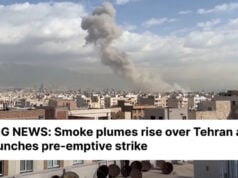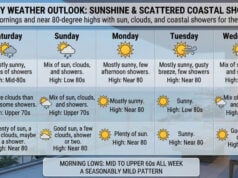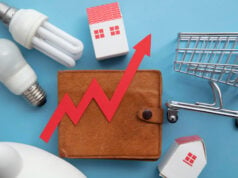
When home inspections reveal elevated levels of radon gas, mitigation experts are called in to assess and address the issue. Their work is critically important to homeowners, protecting them from the carcinogenic effects of radon, but it is also complicated and demanding due to the variety of issues that can lead to fluctuations in radon gas levels.
Fran West, founder of Fran the Radon Man, LLC, has more than two decades of experience helping residents in New Jersey with radon testing and mitigation. West is a civil engineer with a background in environmental science who has been a licensed radon tester and mitigator in New Jersey since 2002.
As he has sought to provide his customers with the protection they need against the deadly colorless, odorless, and tasteless gas, he has come to rely on the innovative technology of Ecosense’s EcoGuard monitoring system, a long-term continuous radon monitoring service that protects homeowners against mitigation system failures.
Ensuring the effectiveness of radon mitigation
Radon mitigation, which seeks to lower the levels of radon gas within a home to non-harmful levels, often relies on an active soil depressurization system. By utilizing suction pipes and fans, the systems allow radon to move from under homes to the outdoor environment before it can increase indoor radon levels. Fan pressure alarms are commonly used in these systems to alert homeowners to system failures.
EcoGuard provides more effective monitoring than conventional alarms because it accurately tracks actual radon levels rather than just fan performance. EcoGuard also improves the monitoring process by providing real-time hourly radon data that is remotely accessible through a mobile app and professional dashboard. It’s one of the many innovative radon monitoring solutions that Ecosense has developed to provide lung cancer prevention technology to homeowners and radon mitigation professionals.
“Worldwide, radon is estimated to cause 84,000 deaths each year,” reports Insoo Park, CEO of Ecosense. “It’s the leading cause of lung cancer among people who don’t smoke and strikes victims with very little warning. Fortunately, radon-induced lung cancer is a threat that can be easily eliminated by continuous radon monitoring and proper mitigation. And today’s technology makes radon monitoring more accurate and affordable than ever.”
Creating a win-win for homeowners and professionals
EcoGuard is a modern solution to radon mitigation monitoring that West has installed in nearly 150 homes in New Jersey in 2024 alone. Its enhanced reliability allows him to do his job more efficiently while also providing greater peace of mind to his clients. It’s a win-win, and his clients don’t mind paying more for it as part of their system.
“The first couple of customers I offered it to said, ‘Fran, why are you even asking me this? Why don’t you just include it in your price?’ So that’s what I did,” West reports. “It’s a little more expensive than the audible pressure-sensor alarm, but my customers love it.”
West says EcoGuard has become a strong selling point for his services, giving him the technology he needs to guarantee radon levels of less than 2.7 picocuries per liter (pCi/L) — the safe level established by the World Health Organization. Even when his competitors offer a lower price for mitigation, West finds that the enhanced service he can offer thanks to EcoGuard tips the scales in his direction.
“My customers love EcoGuard, and they love the app where they can see real-time data,” West says. “It’s a great little device, and it’s opened up a whole new revenue stream for me.”
Increasing efficiency with remote connectivity
EcoGuard transmits the data it collects to the system’s dashboard and mobile app using Wi-Fi connectivity. When it detects a significant change in radon levels, it sends a push notification to the professional, alerting them to the problem.
“The push notifications really work!” West shares. “We had one customer who triggered an alert because the power to his fan was disconnected, and his radon was going up and up. When we got the alert and called him, we went back out to the house, determined what was wrong, and fixed it to get him back up and running again.”
EcoGuard can also notify homeowners directly when an issue occurs. While some mitigation professionals fear this feature could lead to frequent and unnecessary service calls, West has not found that to be the case. Instead, he sees such calls as an opportunity to restate the system’s value.
“To me, it’s another chance to talk to the customer and make it more likely that they’ll extend their warranty for another year,” West says. “So on those few occasions when I get a call, I don’t mind it because it’s not that hard to explain. Plus, they can see how the system is working and how the EcoGuard is tracking radon levels constantly.”
West admits that a few years ago, he might have felt the extra expense required for the EcoGuard system was not something his customers would be willing to pay for. But after installing nearly 150 EcoGuard systems, he knows that isn’t the case.
“EcoGuard is great for me and my customers,” he says. “It’s a valuable selling point, and it’s been a plus to my business.”
Disclaimer
Artificial Intelligence Disclosure & Legal Disclaimer
AI Content Policy.
To provide our readers with timely and comprehensive coverage, South Florida Reporter uses artificial intelligence (AI) to assist in producing certain articles and visual content.
Articles: AI may be used to assist in research, structural drafting, or data analysis. All AI-assisted text is reviewed and edited by our team to ensure accuracy and adherence to our editorial standards.
Images: Any imagery generated or significantly altered by AI is clearly marked with a disclaimer or watermark to distinguish it from traditional photography or editorial illustrations.
General Disclaimer
The information contained in South Florida Reporter is for general information purposes only.
South Florida Reporter assumes no responsibility for errors or omissions in the contents of the Service. In no event shall South Florida Reporter be liable for any special, direct, indirect, consequential, or incidental damages or any damages whatsoever, whether in an action of contract, negligence or other tort, arising out of or in connection with the use of the Service or the contents of the Service.
The Company reserves the right to make additions, deletions, or modifications to the contents of the Service at any time without prior notice. The Company does not warrant that the Service is free of viruses or other harmful components.












